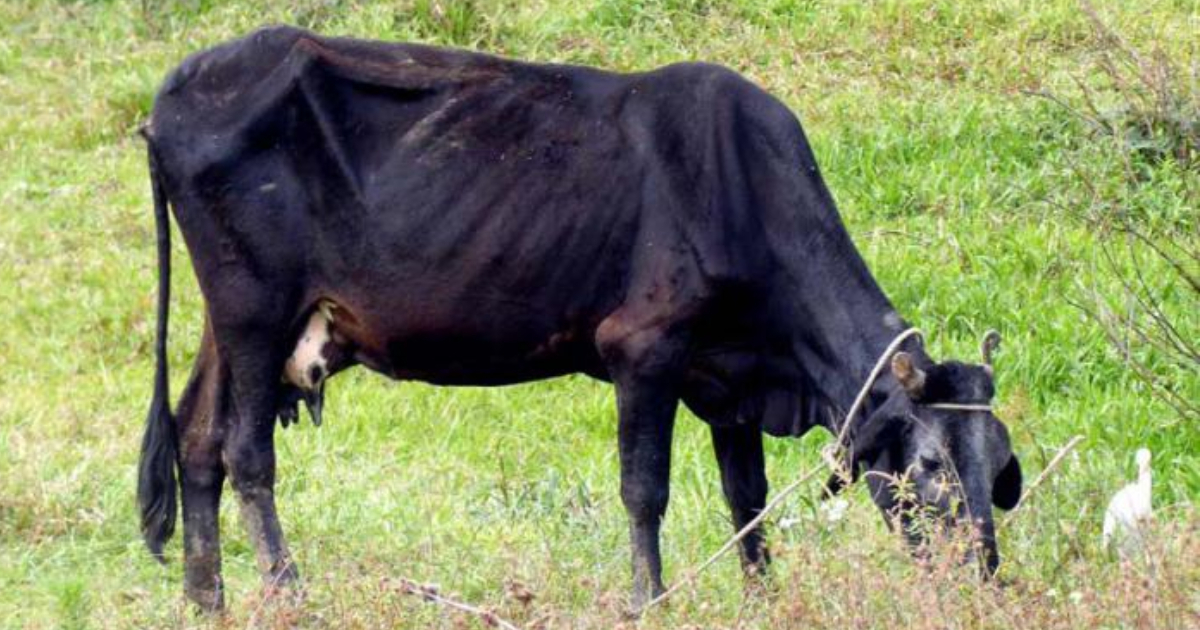
At least 25 cattle die daily in the Cuban municipalities of Limonar and Colón, in Matanzas, as a result of the theft and illegal slaughter of large livestock, authorities said.
A report from the official newspaperGranma points out that "in a short time" more than 500 animals have died in the province, mostly milk-producing cows.
Susely Morfa González, first secretary of the Party in Matanzas, recognized among the causes of this increase the lack of control of the livestock mass of the province, one of the most affected in the country by these criminal acts, by private ranchers and state companies.
The newspaper, for its part, highlights that the illegal slaughter of 500 cattle has affected milk production. With the missing cows, about ten dairy farms could be sustained, he emphasizes.
The main victims are, in the first instance, the producers, who end up "owing thousands of liters of milk in sales to the State, and some farmers market, on the left, a liter for one hundred pesos," he explains.
In the month of January of this year Camagüey,Holy Spirit, Las Tunas and Matanzas accumulated7,647 thefts and sacrifices of livestock, to which the government recognized its powerlessness to stop the crime wave with high prison sentences.
However, the records move constantly, if in January in Las Tunas more than 4,400 cattle and horses were sacrificed, in Julythe province of Ciego de Ávila held the Cuban record of theft and illegal slaughter of livestock, with 17 in one day, the National Revolutionary Police (PNR) reported on that occasion. Now Matanzas counts 25 sacrifices daily.
In 2021, the government authorized the free sale and self-consumption of beef to Cuban ranchers, conditional on prior compliance with sales to the State and as long as the livestock mass did not decrease, as part of 63 urgent measures to try to alleviate the food crisis.
In March, the Cuban regimethreatened people who buy beef on the black market, without knowing its origin, about the possibility of incurring the crime of "reception." "Crimes related to livestock not only include people who steal and slaughter the animal, but also citizens who buy the meat," stated a note from the Ministry of the Interior.
Henew Cuban Penal Code, which must come into force in April without prior consultation with citizens, provides higher sentences for the crime of illegal slaughter of large livestock. According to article 318.1 of the draft bill, whoever slaughters larger livestock without the authorization of the competent state authority will be punished with deprivation of liberty for three to eight years.
What do you think?
COMMENTFiled in: